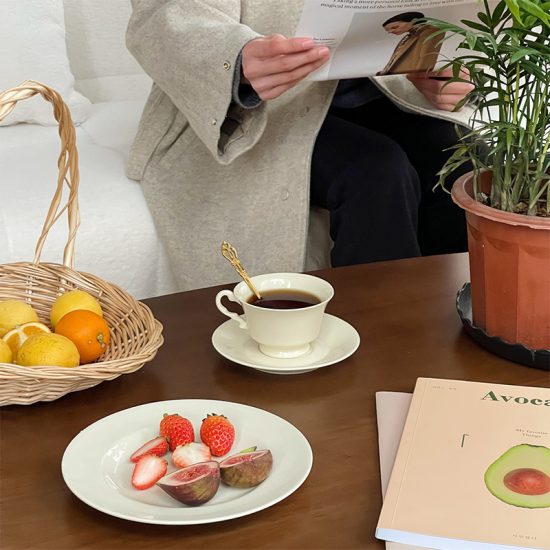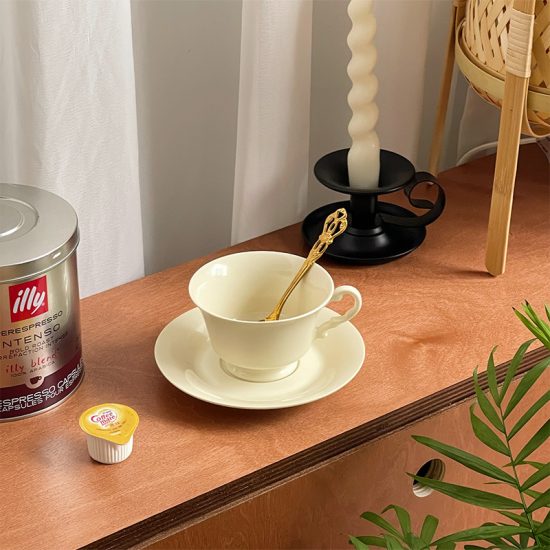Ceramic cups have historically played significant roles in ceremonial and ritual practices across various cultures. Here are a few examples of how ceramic cups are used in such contexts:
- Tea Ceremonies: In cultures such as Japan and China, ceramic cups are central to traditional tea ceremonies. These ceremonies emphasize mindfulness, tranquility, and the appreciation of tea. Specialized ceramic tea bowls, such as the chawan in Japan or the gaiwan in China, are used to prepare and serve tea. These cups are often carefully chosen for their aesthetic appeal and symbolic meaning, and they enhance the sensory experience of the tea ceremony.
- Religious Rituals: Ceramic cups are often used in religious ceremonies and rituals around the world. For instance, in Christian religious traditions, ceramic cups or chalices are used to hold wine or grape juice during the Eucharist or Communion, symbolizing the blood of Christ. These cups are treated with reverence and are integral to the spiritual experience of worshipers.
- Indigenous Ceremonies: Many indigenous cultures incorporate ceramic cups into their traditional ceremonies. These cups may be used for sacred rituals, such as offerings to deities or ancestors, as well as for communal gatherings and celebrations. The cups may feature unique designs, symbols, or patterns that hold cultural and spiritual significance within the indigenous community.
- Rites of Passage: Ceramic cups are often used in rites of passage ceremonies, marking significant transitions in life. Examples include weddings, where ceremonial cups may be used for toasting and symbolizing the unity of the couple, and coming-of-age ceremonies, where special cups may be given to individuals as they enter adulthood or assume new responsibilities.
- Healing and Wellness Practices: Ceramic cups are also used in certain healing and wellness practices. In traditional Chinese medicine, for instance, heated ceramic cups are applied to specific areas of the body to create suction and stimulate circulation. This technique, known as cupping, is believed to promote healing and balance in the body.
In these ceremonial and ritual practices, ceramic cups often carry symbolic meanings, cultural traditions, and a sense of sacredness. They become vessels for spiritual connection, reflection, and community engagement. The choice of materials, designs, and rituals surrounding the cups contribute to the overall significance and power of these ceremonies.


